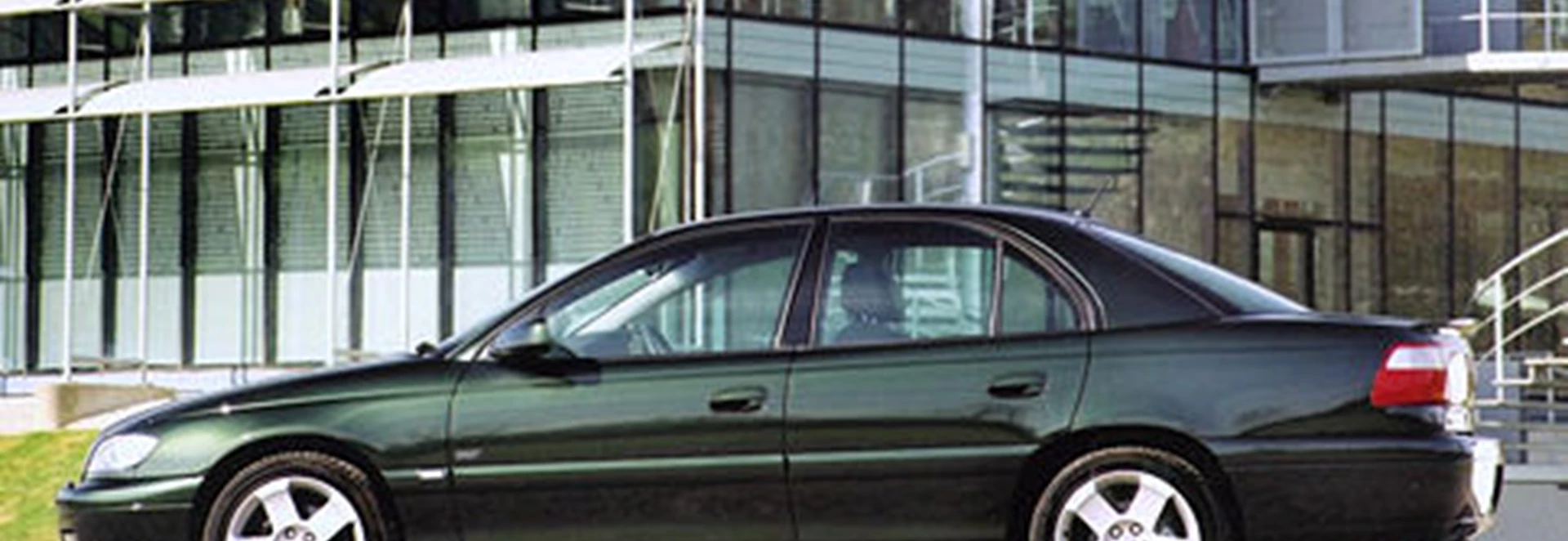A friend of mine once told me that he reckons there is a market for large cars (he's a tall chap himself) with the absolute minimum of equipment (he's also thrifty, having paid a grand total of £250 for his most recent acquisition).If he worked for a manufacturer and suggested such a scheme he would be demoted to toilet cleaner before the end of the first sentence. It just isn't financially practical to build big, sparsely-equipped cars these days. But he's right in saying that size should not necessarily equal luxury and expense.The concept of the two-litre Omega makes a good deal of sense. If you have to transport people in comfort, and take lots of luggage with you, without having to face huge fuel bills, this might just be your ideal car. The engine is small compared with the body size, so there's no point in pretending that this is a quick car, especially with the automatic transmission option. But it works its way up to cruising speed quite happily, though the gearchanges it performs in the process are not at all subtle.At motorway speeds it's quiet and smooth, to the extent that it would be a perfectly acceptable mode of transport if you had to cover the length of the country in one go.What it doesn't do is cope well with corners. The suspension department has obviously worked on the basis that the softer you make a car, the better the ride is, but this isn't quite true. On country roads - and I mean A-roads, not farm lanes - you have to concentrate hard on steering smoothly, otherwise it handles like a cross-Channel ferry with all the lorries parked on the passenger deck. Firmer damping would make a big difference.If you're not too concerned about this, the Omega is quite appealing. It's an honest mile-eater, and it looks very smart - the mid-life facelift has given it a little of the air of the Cadillac Seville STS, which is good news if, like me, you admire the Cadillac's lines.On the other hand, while I was living with it I couldn't help feeling that it wasn't a hugely more attractive option than a ten year-old Carlton. If you took the Carlton option you would not, of course, have all the various benefits associated with buying a new car, but at the same time you would save thousands of pounds.And, of course, the Omega would be much more reliable, wouldn't it? Well, maybe. Halfway through my stint with the car the front passenger door decided to remain locked shut. I'm very glad my companion on that trip discovered this after we had parked, and not while trying to escape from a major accident.The driver's door could not be relied on to unlock all the time either, which was even more disturbing, and simply not good enough for a car with not much more than 7000 miles on the clock. It's quite possible, of course, that I was just unlucky with this particular car, but it worried me all the same.I'd need to be convinced that this was an isolated fault before recommending the Omega to a potential customer. And I'd also like to know that Vauxhall had plans to bring the next-generation version up to the standards of its rivals, and wasn't just relying on there being a market for large, simple cars.Second opinion: I'd skip the automatic transmission, reducing the price by £1000, getting better acceleration and lower fuel consumption. But the Omega has become, unobtrusively, one of the most elegant large saloons. It's much roomier, especially in the rear, than many far more expensive rivals. The remarks about the suspension are just about right, but not many customers for the two-litre will bother. It's a motorway (or, as an Opel, autobahn) cruiser. The door lock problem was a real pest, and, as with all Omegas, the first thing I did was remove the central rear headrest and bung it in the boot. Ross Finlay.

Our Rating



